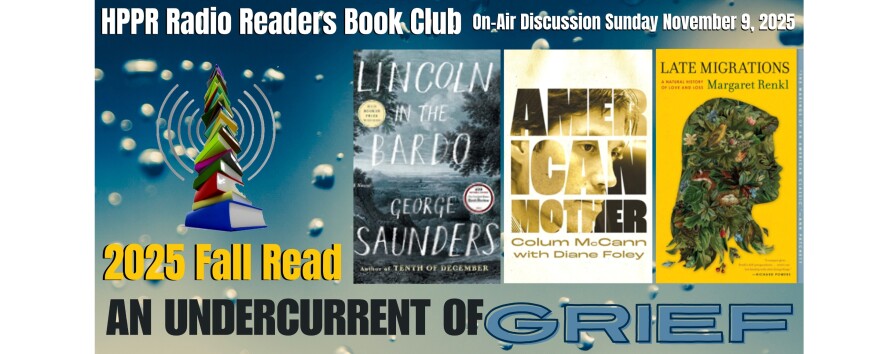I’m Pat Tyrer from Canyon, Texas for the High-Plains-Public-Radio-Readers Book Bytes for Summer 2023.
I recently read two entertaining novels in different genres with different plots that turned out to have similar themes and points-of-view. Both are enjoyable and humorous—just the kind of books that are great for summer reading.
Lessons in Chemistry (2022) by Bonnie Garmus is the story of a woman chemist in the early 1960s who runs into problems from graduate school to professional employment because of her gender. The themes of sexism and the subjugation of women is consistent with the historical reality of the period, especially for women in the sciences, but the novel is written with both a sense of history and a sense of humor.
Despite the overwhelming rejections of her work by the scientific community, The central character, Elizabeth Zot, is a research chemist who finds a way to promote herself, find professional satisfaction, and support her young daughter. Having lost her research position, Elizabeth is offered a job hosting an afternoon cooking show during the worst programming slot, the “Afternoon Depression Zone,” the period in which “housewives feel the greatest amount of pressure. . . . to make dinner, set the table, [and] locate their children.” Elizabeth accepts the challenge intent on educating America’s housewives.
She shows up to her first taping in a lab coat prepared to teach the chemistry of cooking which she has named “Supper at Six.” Initially all does not go well when her first list of ingredients contains CH3COOH, causing the station to be overrun with calls asking where to buy the ingredient which Elizabeth explains is “acetic acid”—better known as vinegar. The humor provides comic relief from the frustration of gender stereotyping. When Elizabeth informs her audience that the recipe calls for ½ tsp of sodium chloride, her producer begs her, “Elizabeth, just say salt.” She refuses, however, to condescend to her audience and continues teaching kitchen chemistry to her growing number of followers. In a hint of magic realism, Elizabeth’s dog, 6:30, offers clever insights throughout the novel.

The second novel, When Women Were Dragons, by Kelly Barnhill is set in small-town Wisconsin in the late fifties. This speculative fantasy explores similar themes of sexism and the limitations placed on mid-century women. Beginning with the Mass Dragoning of 1955 thousands of women world-wide suddenly exploded into dragons, leaving behind husbands, children, and homes. Crafted as a bildungsroman, the story focuses on the main character, Alexandra, “Alex” who grows from a young girl into womanhood amidst the turmoil of change. Alex is required to always keep her eyes downward, to be careful not to outshine the boys in her classroom, and to pretend that there are no such things as dragons.
The entire society not only denies their existence but requires everyone to pretend that what occurred and continues to occur daily is not happening. When Alex’s Aunt Marla dragons leaving baby Beatrice behind, Alex is told that Beatrice is now and ever has been her sister. The plot reflects the historical reality of a woman’s place in society and highlights both the lies society tells us as women as well as the lies we tell ourselves.
The novel is cleverly interlaced between the main plot of the maturing Alex and the seemingly scientific papers on dragoning by Dr. H.N. Gantz, the author of “A Brief History of Dragons.” Kelly Barnhill, the author of Chemistry Lessons, calls the novel “Fierce . . . Feminist . . . Funny.” This could be equally said about her own novel. Both are homages to the struggle for women’s rights and acceptance as equals—a battle that continues. Chemistry Lessons and When Women Were Dragons will both entertain and enlighten. I hope you’ll add them to your summer reading list.
Again, I’m Pat Tyrer from Canyon, Texas for the High-Plains-Public-Radio-Readers Book Club. Happy summer reading!

Radio Reader Pat Tyrer (pronounced ty-REE) will serve as Book Leader for The Cellist of The Cellist of Sarajevo. Tyrer is Jenny Lind Porter Professor of English at WTAMU where she teaches creative writing, American literature and technical communication, but Pat began her career as an LPN and a Navy purchasing agent before beginning her academic career at age 40. She has published short stories, poems and essays in a variety of journals, and has published two books of poetry, Creative Hearts and Western Spaces, Western Places.
Note: To listen to a 2022 Summer Reading list review of Women Were Dragons by Sara Crow, visit https://www.hppr.org/2022-07-25/when-women-were-dragons-book-review










